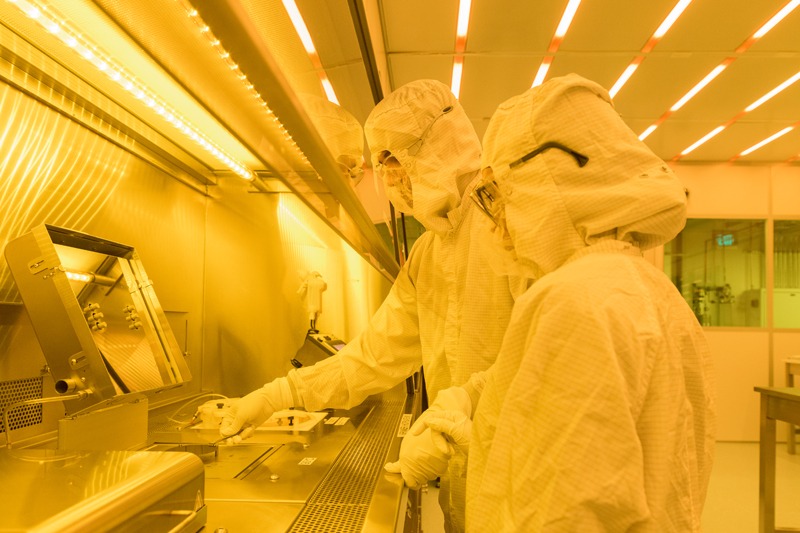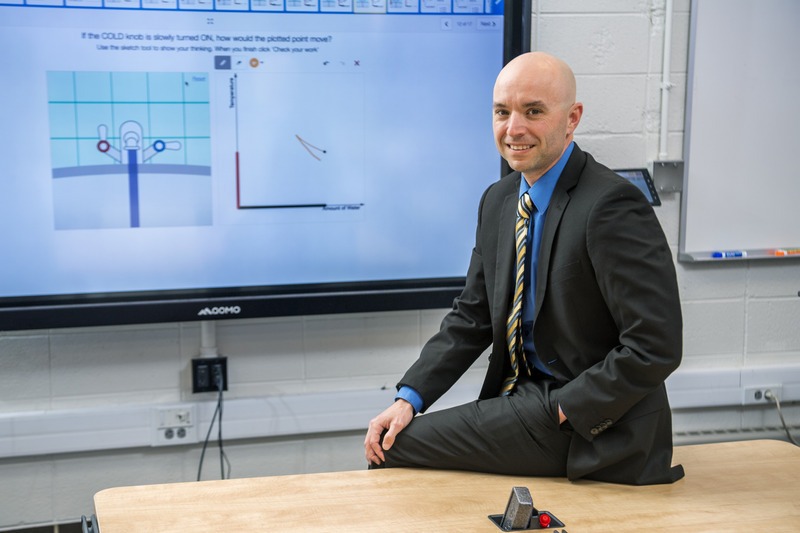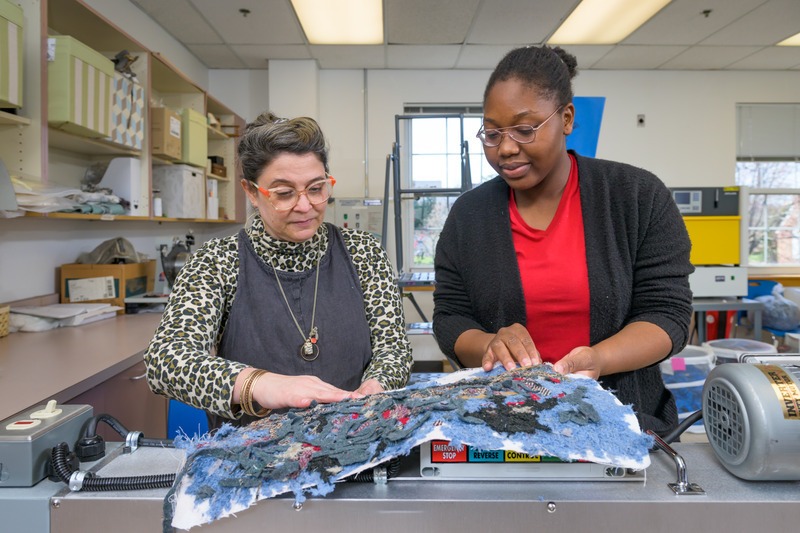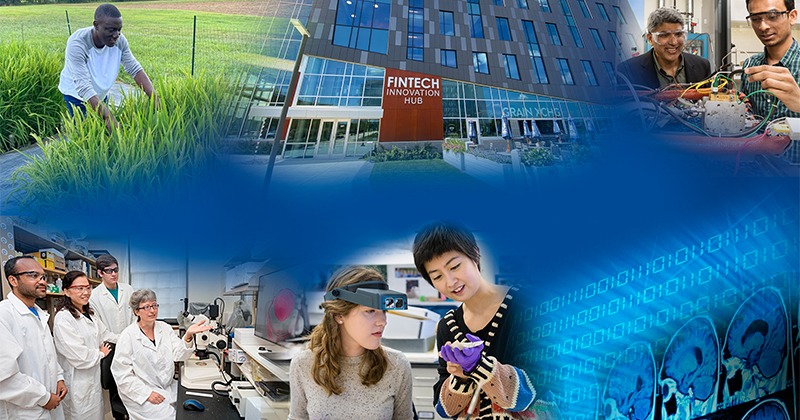UD leaps forward in NSF HERD Survey
The University of Delaware’s reputation as a research powerhouse just got another big boost.
In the latest Higher Education Research and Development (HERD) Survey released by the National Science Foundation, UD ranks 47th out of 626 academic institutions across the United States when comparing non-medical school R&D expenditures.
The HERD Survey provides this “apples to apples” comparison, as not all universities and colleges have medical schools (including UD).
Rising from #78 to #47, UD now ranks in the top 8% nationally for R&D activities. UD is in the immediate company of Utah (46), Rutgers (45), Iowa State (44), SUNY, Polytechnic Institute (43) and Stanford (42) and ranks above Rockefeller University (48), University of California, Irvine (49), Washington State University (50), University of Pittsburgh (51) and University of Missouri (52). More than half of these schools (noted in bold) are members of the elite Association of American Universities (AAU).
Also, the University is now 78th in total research spending, up from 109th, and 52nd among public universities, up from 73rd.
The survey covered the 2022 academic fiscal year, spanning July 1, 2021, to June 30, 2022. During this period, UD’s reported R&D expenditures increased 59% over the previous year, from $231 million to $368 million.

The UD Nanofabrication Facility — one of 11 centrally funded research core facilities at the University — supports researchers in creating devices smaller than a human hair for applications ranging from medical diagnostics to solar energy harvesting. Aqiq Ishraq (left) and Tasnim Arony, graduate research assistants in materials science and engineering, are shown working on silicon wafers in the high-tech facility.
Investing in research and innovation
The HERD Survey, which is conducted by the National Science Foundation, is the primary source of information on research and development expenditures at U.S. colleges and universities. These expenditures provide a nationally accepted measure for comparing R&D activities across institutions.
But what are these R&D expenditures, exactly? Think of them as investments — some funds are provided by external sponsors, such as competitive grants awarded by federal and state agencies to research investigators; some funds are provided by universities themselves, supporting investigators with a variety of research needs.
During the past five years, UD has hired 460 faculty, providing “startup” funds to help new researchers establish their labs and procure the equipment essential to their work.
Seed grant programs offered by the Research Office, research institutes and centers, colleges and departments provide opportunities for researchers to explore an idea or pursue proof-of-concept studies that may yield promising findings, laying the foundation for scientific publications and successful proposals to an external sponsor.
Tuition remission is yet another important way the University supports graduate students who play a critical role in UD’s research engine, working on projects with their advisers through a university fellowship or graduate assistantship.
Developing a strong research community at UD
To further grow and nurture the University’s research enterprise, the Research Office offers a variety of professional development programs, such as the NIH Academy, which prepares researchers to become successful grantees of the National Institutes of Health through a program of mentoring and proposal preparation, and the NSF CAREER Academy, a six-month proposal preparation program assisting tenure-track faculty in competing for one of the National Science Foundation’s most distinguished funding awards for early-career scholars.

Teo Paoletti, College of Education & Human Development has received a NSF Career Award for his work with teaching middle school students a better way of teaching Alegbra. He teaches using examples of faucets to help students develop an understanding of graphing.
“The Research Office is here to support our investigators in their endeavors, and we applaud their success,” said Kelvin Lee, interim vice president for research, scholarship and innovation. “Our team has the expertise and dedication to help move this important work forward, from identifying grant opportunities to protecting and promoting UD discoveries and inventions.”
Already this fiscal year, 520 research proposals have been awarded to UD by various agencies. Every college at UD is part of the action, with topics ranging from high-interval training to recover walking after a stroke, to recycled textile and apparel manufacturing.
The University of Delaware’s commitment to uncovering new knowledge and problem-solving has taken its research teams from the bottom of the sea to outer space, with impacts on local to international levels.
From its pioneering role in the early development of the Internet to a Nobel Prize-winning chemical reaction in global use, UD impacts the world in many positive ways. Whether promoting civil discourse, preserving our cultural heritage or innovating solutions for a more sustainable planet, UD researchers are putting their expertise and talent to work for the public good.

Associate Professor of Fashion and Apparel Studies Kelly Cobb along with her students working with recycled materials in the “Research through Applied Discovery” (RAD) Lab. Kobb is leading the Recycled Textile and Apparel Manufacturing Ecosystems (RETAME) project which is funded by a $745,000 “Convergence” grant from the National Science Foundation to bring together industry, academic, and non-profit partners to help “build a sustainable recycled materials model for the textile and apparel industry” [UDaily].
Pictured: Kelly Cobb with undergraduate senior Diadem Abayode
Article by Tracey Bryant | Photo illustration by David Barczak | Photos by Evan Krape and Kathy F. Atkinson (featured on UDaily, 12/04/2023)

